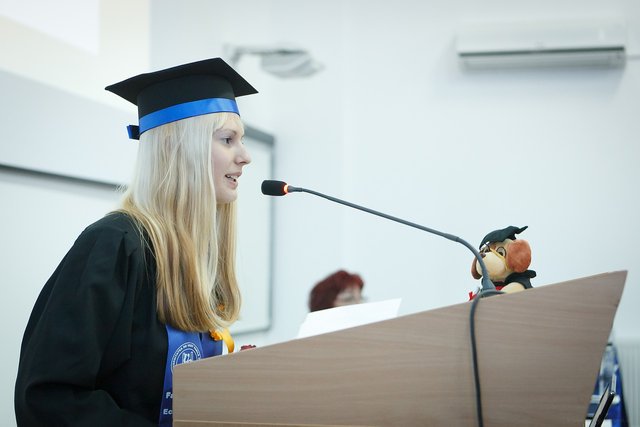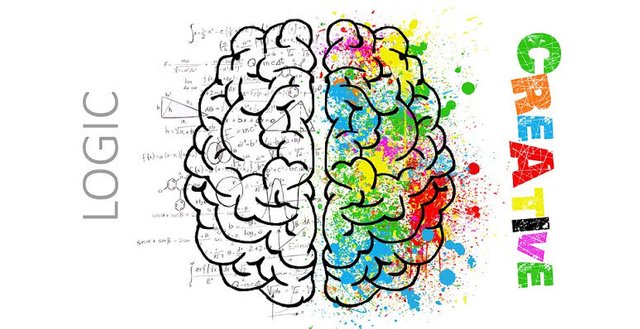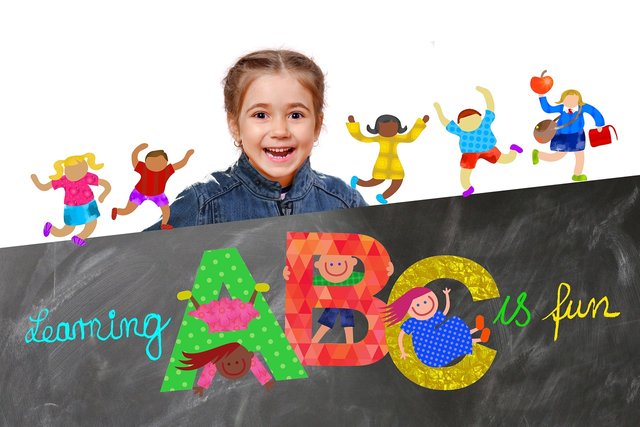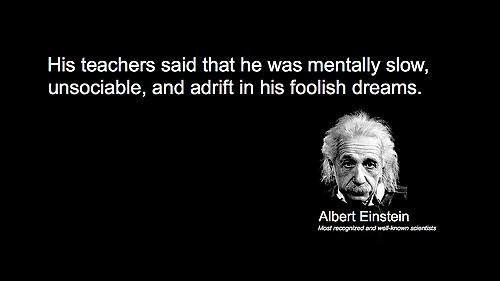EVERY CHILD HAS THE POTENTIAL TO BECOME A GENIUS
During the weekend, after going through all manner of stress you can possibly imagine, I decided to cool off a little bit by visiting my #Steemit news feed before finally retiring to bed. Luckily enough, the first post I stumbled upon was from @zen-art and you can read it HERE. Well, aside from the fact that I already know her to be an amazing writer; I was completely mesmerized by the title of the write-up so I decided to check it out. Just like always, it was definitely worth the time. As a matter of fact, even before I could finish reading the post, I got the inspiration to write about a common societal issue we all have experienced at some point in life. We'll discuss this in details as we move ahead. Now, saddle your seat belt and lets take this ride together.
Nobody is stupid
 (License: Public Domain]:
Pixabay
(License: Public Domain]:
Pixabay Like I always tell my students; growing up isn't so much fun for children whose parents are teachers. Even though this to an extent might sound like a hasty generalization; yet, the truth is that, this assertion is strictly based on my personal experiences. Unfortunately, or should I say fortunately enough, I grew up with a university lecturer father and a secondary school teacher as a mother. Funnily enough, back then it was as if we had a timetable for every single activity in the house. You can't just watch Disney movies or play football in peace. Since mum was mostly around at home, she kind of had a way of forcing me and my siblings into this absurd relationship with our books. With time we became bookworms, not because we enjoyed reading, but because the thought of having our asses whooped scared us as hell.
In actuality, although childhood in this part of the world was and is still boring for people with academic parents like mine; all the same, it's rare to see such children lagging behind in any sphere of learning. I assume this also must have been my paternal aunt's belief that's why she literally bundled her two kids to stay with us. It came as a surprise to us kids, but I'm sure she must have talked over it with my parents. When we saw my cousins with their luggage we kind of knew that they weren't going back anytime soon. From the way we laughed at them, I'm sure my cousins must have understood they were in for something real and serious. Indeed, we were too eager for the evening to come so my cousins would get a taste of what we've been experiencing. However, that was never meant to happen.
As a matter of fact, the way mum treated my cousins was different from the way she ever treated us. There was no flogging or shouting at all. In a twinkle of an eye she became so nice and friendly. At first we thought she was only faking it so my cousins would feel at home and after that she'd unleash her true self. But surprisingly it didn't seem like that was her intention. In no time my cousins were able to read their school literatures. The transformation was just too sudden and epic that it prompted my aunt to allow them stay with us till they were done with high school. I guess this is one decision that really paid off for her family. Well, you may be wondering why I had to say all these. The truth is that each time I flashback on this particular memory I just shared, I have more reasons to believe that nobody is airheaded. So before you judge a fish for its inability to walk on land; or just before you call your child a waste of resources; I want to ask you a simple question, have you ever heard of dyslexia, or probably watched the movie 'Like stars on earth'?. Well, I won't be surprised if the answers are not in the affirmative.
Lets start with the basis...
.jpeg) (License: Public Domain]:
Pixabay
(License: Public Domain]:
Pixabay I'd love to begin by saying that the concept of dyslexia is definitely inexhaustible. I can state emphatically that all we'll probably discuss is a tip of the iceberg. Because of how elaborate this subject matter is, you should have at the back of your mind that we'll be focusing on relevant points that pertains to this neurological abnormality. But before we go straight to defining dyslexia, it's worthy of note that although this condition is neurological, it has nothing to do with intelligence. Affected individuals can still be brilliant and outstanding in their career pursuits. As we move ahead you'll understand why it is so. Now, according to WHO, dyslexia is defined as
A disorder manifested by difficulty learning to read, despite conventional instruction, adequate intelligence and sociocultural opportunity. It is dependent upon fundamental cognitive disabilities which are frequently of constitutional origin
Let me break it down to a layman's level. From the definition above, we can deduce that dyslexia is more of a linguistic problem not a visual problem. The inability of victims of dyslexia to read and write is certainly not because they can't see the letters, or should I say graphic symbols. In fact to a great extent, their vision is always perfect. Where the problem occurs is the way the brain process these letters. That's why, you might see a child or adult trying so hard to pronounce what he or she is seeing in a book but finds it extremely difficult to. Also, for some (especially students); it might take them forever before they could copy anything correctly. This is because they may likely look at the letters a couple times before penning it down due to difficulty in concentration. In the case of their handwritings, if you've ever seen a chicken scribbling on the ground with its claws, then you'll understand exactly how terribly they sometimes write.
Dyslexia: A blessing or a curse?
 (License: Public Domain]:
Pixabay
(License: Public Domain]:
Pixabay With all the negativity surrounding dyslexia, someone will definitely be eager to know what could possibly cause this weird condition. According to several research studies, experts and researchers are not precisely sure what could be the actual cause of dyslexia. At the same time, the suggestions by these experts all points to a key factor which is genetics; meaning an individual is born with it. Why it’s believed that dyslexia is controlled by the gene is because in most cases, each time the victims are questioned about their genealogy, there's always evidence that points to the fact that this neurological abnormality runs in their families. Aside from the assessment of victims, another strong reason that pinpoints to the connection between dyslexia and genetics is the discovery made by a team at the Yale School of Medicine. Based on reports, they were able to unravel the direct involvement of DCDC2 gene in reading performance. From a rational point of view, it was concluded that since DCDC2 is the gene responsible for reading performance, therefore if there's an inhibition of or a defect in this gene, dyslexia will be triggered.
Even though genetics happens to be in the center-stage of dyslexia, overtime it has also been noticed that the genealogy of some of these victims doesn't prove the existence of this condition. For instance, I've heard parents scold their children asking them where they got their birdbrains from since according to them the family is full of intelligent individuals. Well, aside from genetics, researchers also posit that a small minority of persons suffering from dyslexia weren't born with it. It's believed that these people only acquired the neurological abnormality because of certain factors like accidents (that results in brain injury), stroke, depression or some other type of trauma.
Furthermore, it's pertinent to chip in the fact that there's absolutely no medical test that can be used to diagnose one of dyslexia. This is because the condition is usually self-diagnosable and doesn't require any laboratory test. In order for the doctor or psychologist to ascertain if an individual is actually suffering from dyslexia or not, these specialists will have to derive their conclusions from what the individual will likely tell them. In the case of a child, the parents or sometimes the school teachers will narrate their observations. The questions that are basically asked by these specialists do emphasize on important factors such as the person's educational issues, family history, and mental health. From the answers, the specialist will be able to ascertain if the problem is really dyslexia or something else so as to know the possible solutions that could be adopted. If the inability to read or learn is caused by poor vision and hearing, problems at home, etc., then these factors also will be targeted and corrected.
Surviving with dyslexia
.jpeg) (License: Public Domain]:
Flickr
(License: Public Domain]:
Flickr In actuality, a mere knowing that dyslexia is a lifelong condition would definitely scare anyone. But despite the fact that it has no cure, research has proven that victims of this neurological abnormality can still excel beyond human imagination. So before you start feeling as if you're way better than every dyslexic out there since you're not suffering from it, I want you to know that you're just wallowing in the fantasy world. Albert Einstein, Walt Disney, Agatha Christie, George Washington, Mohammed Ali, and many other heroes were fellow soldiers of dyslexia but were still able to write their names in the sand of time because of the support they got.
On that note, I'd love to say that the only cure or effective treatment for dyslexia patients is support. Like we talked about earlier, even though this condition is neurological, it has nothing to do with intelligence. For the young ones, they stand a better chance of overcoming dyslexia. Please don't misquote me, I'm not saying adults can't overcome it too. Actually, it's also possible for adults to overcome dyslexia, but it will require much effort. Well, back to what I was saying. Once a couple of reading programs geared towards improving the affected person's phonics, fluency, vocabulary and comprehension are used, the outcome for sure will be marvelous. Now, experts group these reading programs and techniques into two:
• Orton-Gillingham technique
• Multisensory instruction
At this point I'll explain how these techniques work one after another. For Orton-Gillingham technique, individuals are taught how to match letters with sounds, and recognize letter sounds in words. With this, reading and spelling will be made easy. In addition to this, multisensory instruction is used to teach dyslexic patients how to make use of all their senses (sight, hearing, smell, taste, and touch), in learning. Well, from the explanation you'll agree with me that this support is not only given by the school teachers; the parents and the society also have vital role to play.
Final thoughts
 (License: Public Domain]:
Pixabay
(License: Public Domain]:
Pixabay From all what we've discussed, one thing stands out; dyslexic patients should never be a laughing stock. They deserve to be happy. Unfortunately, in this part of the world, calling someone you believe isn't smart enough a fool seem so simple. You don't care if his skin is thick enough to withstand all the tantrums thrown at him or her. Overtime, they're drown in depression and they start thinking of suicide as the remedy to their predicament. But this doesn't mean anything to you. Seriously, the world need to quit the unnecessary bullying and every other forms of stigmatization channeled towards people battling with dyslexia. Indeed, dyslexia might not be a blessing, but the truth is, it's definitely not a curse.
I sincerely hope you've learned something from this article. Thanks for doing this with me. Till next time!
To read more about this topic, check out these REFERENCES
Dyslexia from wikipedia.org
Dyslexia from national health service
All you have to know about dyslexia from mayoclinic.org.
What you need to know about dyslexia from medicalnewstoday. com
What are the basics and treatments for dyslexia?. Retrieved on 14th January, 2019
Images are from flickr and pixabay all licensed under creative commons and eligible for commercial use.
I have worked with kids with dyslexia, dysgraphia, and dyscalculia, and one who had all 3. It is hard but it can be done. Languages and math are quite a challenge. I agree with you, every child most definitely has the potential to become a genius. We just have to be aware that different people need different methods of learning and adapt to their needs. Did you know that there are people with Down syndrome who finished college? Isn't that simply amazing?
I am happy that a line from my post gave you such lovely inspiration and you wrote all this, wow.
You'll be surprised that this is my first time of hearing about dysgraphia and dyscalculia. You're definitely a great teacher, there's no doubt about that. I'll just keep learning from here. Thanks for reading ma'am.
This post has been voted on by the SteemSTEM curation team and voting trail in collaboration with @utopian-io and @curie.
If you appreciate the work we are doing then consider voting all three projects for witness by selecting stem.witness, utopian-io and curie!
For additional information please join us on the SteemSTEM discord and to get to know the rest of the community!
This means alot to me. Thanks for the encouragement.
Congratulations @yhubi! You have completed the following achievement on the Steem blockchain and have been rewarded with new badge(s) :
Click here to view your Board
If you no longer want to receive notifications, reply to this comment with the word
STOPThe major issue is that it is harder and harder to adapt, as we have to deal with larger and larger groups of students. When I lecture to a "small" group of 30 students for 2 hours, this means that I have at most 4 minutes for each student (and in fact, much less as I need to subtract the time used for my speech). In the current system and with the monetary means we have, I am afraid there is no way to put enough efforts to discover how each person needs to be taught. It is sad :(
Personally, your analysis made alot of sense. I could relate to every single statement especially the monetary aspect. For instance, in this part of the world, the educational sector is already messed up because it's only when people get frustrated with their dream career that they start trooping into schools. Well, at end of the day it's not about the interest of the students but the pay or monthly salary. It is well.
Ahaha|! I didn't even mention the paycheck part. If you account for the fact that most lecturer is paid for X hours and works for almost 2X hours, it is also bad.